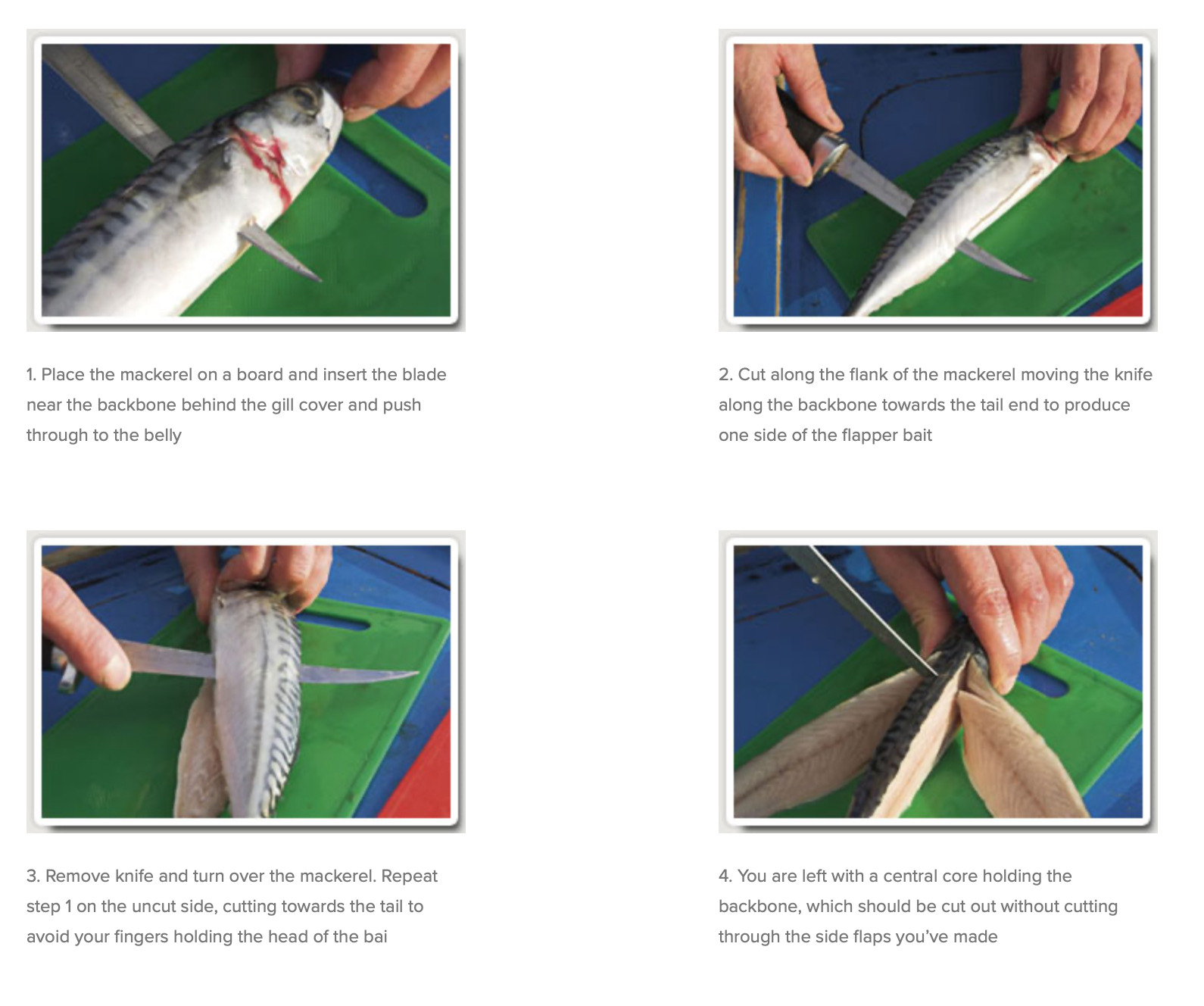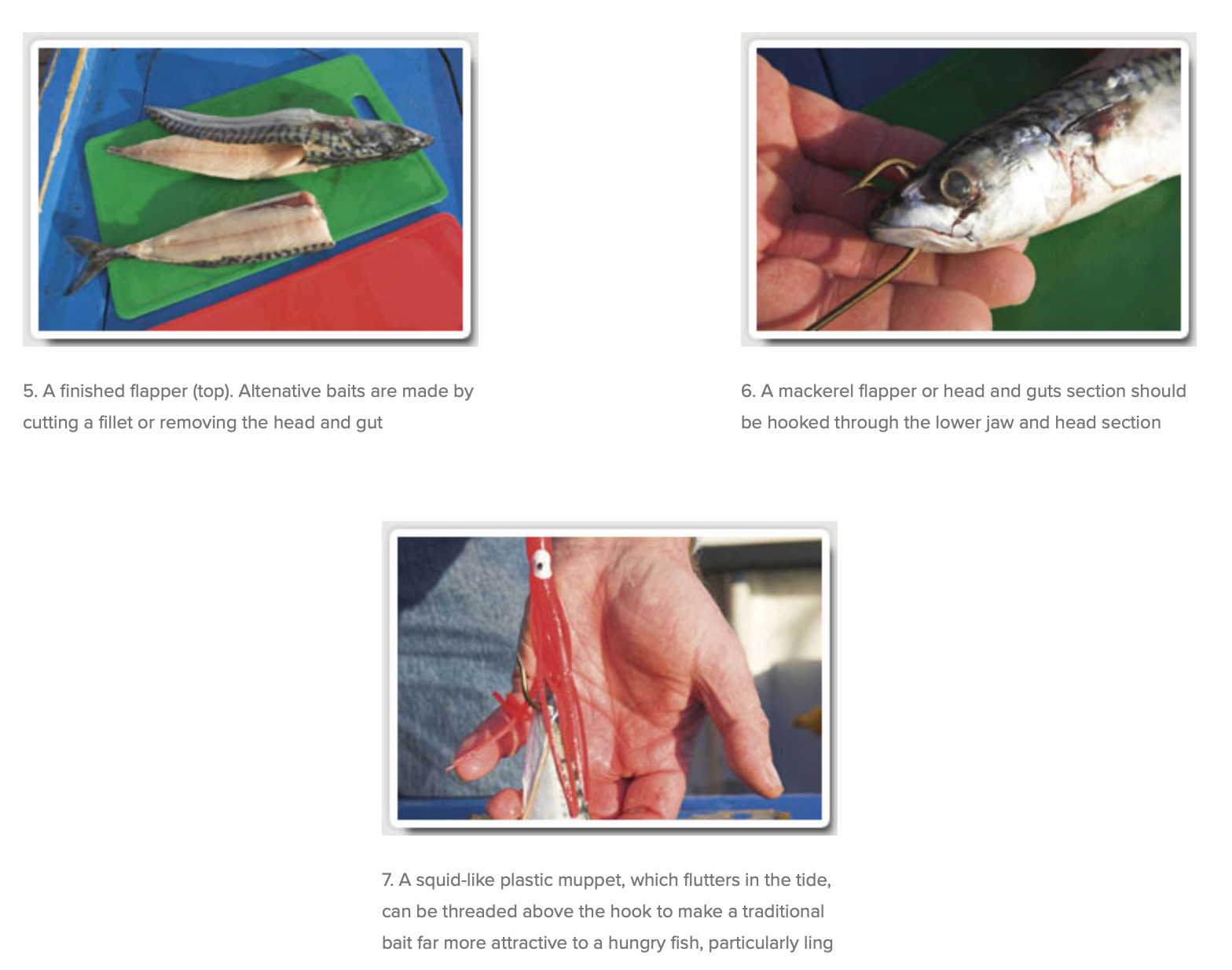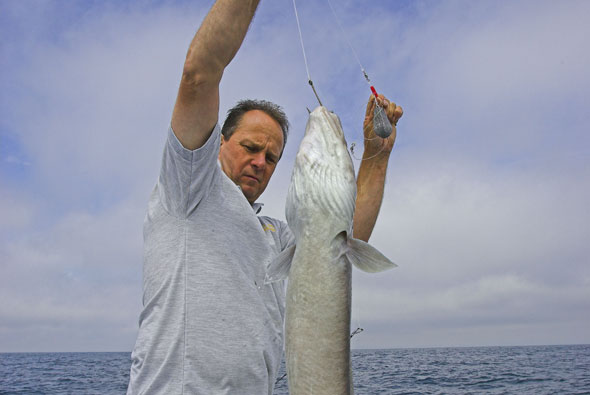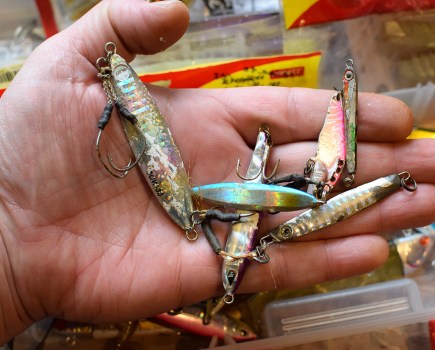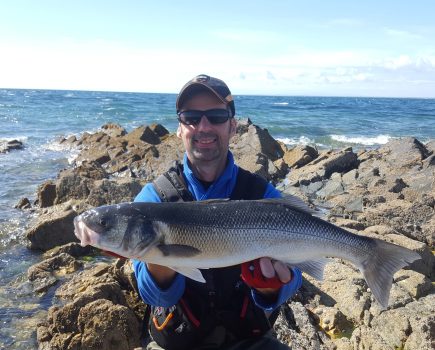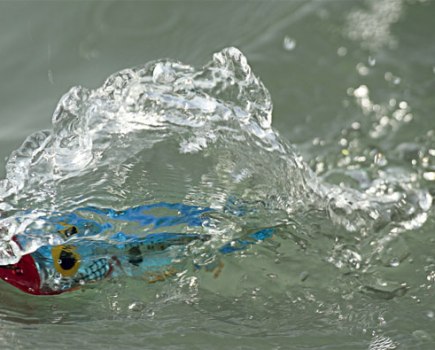The West Country offers the best inshore conger fishing in the country and one man who takes full advantage of the bountiful harvest is Malcolm Jones, skipper of the Plymouth’s Sea Angler II
IT’S A NUMBERS game. The figures are buzzing around the head like a hot GPS unit. Professional skippers live with their brains buzzing, always searching for a new angle on a wreck or reef that could produce fish. Nothing makes a good skipper happier than seeing his people catch fish.
Skippers that have the edge are usually anglers themselves. They enjoy the rush as much as their crews and many a skipper has fallen under the spell, grabbed a rod and fished at the rail alongside everyone else.
Malcolm Jones, skipper of the Plymouth-based Sea Angler II, has done it all and now wears the T-shirt. He’s seen the famous Devon charter port go through good and bad times, but he stands aside and lets his crews’ results speak for themselves.
But Malcolm does have one big problem – he has a serious addiction to hunting down conger eels. Nothing excites him more than setting the boat at anchor, not always an easy thing with tide and wind, then getting the baits down to tempt the eels to feed.
If you have been boat angling over 20 years then you will know the awesome reputation Plymouth had as a boat-angling centre. Like a magnet, the port drew anglers from far and wide, the pubs and clubs hummed, the bed and breakfasts bulged and fistfuls of cash passed over tackle shop counters.
Long-distance wrecking was pioneered in Plymouth with paying crews leaving the pontoons at dawn and boats disappearing over the horizon a few hours later. Malcolm was one of those paying punters and joined many a long-range trip.
What bothered him was knowing what could be caught closer to home, yet anglers were actually steaming over some of the best sea fishing in the country.
For Plymouth is blessed with masses of superb inshore rough ground, reefs and wrecks. With years of experience under his belt Malcolm is able to target congers all year round when conditions allow.
The options are endless from nighttime fishing very close to home in under 30 feet of water, to traditional reefing and wrecking up to 20 miles from the moorings. He just doesn’t need to go further to give his people great fishing.
New tackle and fresh ideas mean that you can now go a few rounds with a conger on 20lb tackle.
 Now that’s exciting fishing by any standards because a shallow water eel lured from its rocky lair is more than a barrel full of laughs.
Now that’s exciting fishing by any standards because a shallow water eel lured from its rocky lair is more than a barrel full of laughs.
“My customers just don’t want to spend all day steaming to reach a mark,” says Malcolm, “when fishing inshore can give at least six to seven full hours sport during a normal tenhour charter.”
Malcolm prefers medium-range tides for productive conger fishing, not the smallest neaps or the raging springs. He is a firm believer in a little run of tide to get the eels feeding. Fishing is all year round, but he favours spring through to late autumn over the reefs and wrecks.
The old chestnut has to be whether wrecks or reefs offer the best opportunities. The skipper’s views are clear on this.
“Wrecks can sometimes give quicker results, but our reefs can throw up great conger eels, plus bonus fish like 40lb ling and cod to 30lb.”
Successful conger eel fishing is a lot about the skipper putting his customers bang on the right spot. Anchoring is extremely skilful and, to be truthful, there are not that many days when tide, wind and weather conditions come together to allow pinpoint anchoring.
Says Malcolm: “When wreck anchoring is messed up by conditions, this is when the reefs come into their own. I still need to be accurate, but big areas of rough ground mean more places for the congers to feed over.
“If one spot isn’t fishing, we upanchor and move somewhere else. Plymouth’s huge reef systems allow me to put lots of anglers over excellent conger ground.”
Leave heavy gear at home
We have all seen the big rod brigade; anglers who fish for eels with tackle designed for landing great white sharks, marlin and sailfish. Well, if you fish with Malcolm, leave that stuff at home.
“Match your gear to where you are fishing,” says Malcolm, “and you are going to have a lot more fishing fun.”
“Leave those buckets of huge lead weights in your garage, keep it nice and simple, come and enjoy yourselves on the boat and sample a bit of sport fishing.”
How refreshing is that?
Malcolm reckons 20lb-class gear is perfect for reef fishing; light enough to enjoy all kinds of eels, but man enough to cope with the bigger fish that can turn up.
One of my favourite fishing memories is playing a 50lb reef eel on 12lb-class gear and Malcolm is totally in tune with that kind of experience and thoroughly encourages it.
He knows that more experienced anglers will decide for themselves, but he’s always on hand to offer advice. One thing he does watch closely is the amount of lead clipped to the line because he advocates matching the lead to the conditions, so the bait stays firmly nailed to the bottom where the eels feed.
“Many times you will be able to get away with just 8oz or 12oz leads, especially if you use braid,” says Malcolm who encourages this sort of sea fishing.
“Fifty pound braid is easy to use and offers a low diameter line that easily cuts the tide,” he says, “but always tie on a long, strong mono leader, which deals with the rough sea bed better and makes my job of unhooking a fish safer and more successful. We like to return our eels.”
If you like fishing monofilament line then 20lb to 30lb will do nicely, although Malcolm suggests you use a 30lb-class rod with it, especially if you plan to go wreck fishing.
Terminal rig is a running leger made out of a 150lb mono trace carrying a size 8/0 or 10/0 hook. The lead weight is suspended from a simple and cheap zip slider stopped by a bead either side and a good quality swivel, which attaches the mono leader to the main hooklength.
“If you’re not losing any rigs, you’re in the wrong spot,” says Malcolm. Anglers need to be prepared for losses, but the boat does carry the essentials on board.

Preparing a mackerel flapper
